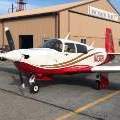Traffic Pattern Conflict With Warrior
-
Members Online
- JModelDave
- MarcJohnson
- cbarry
- Jakes Simmons
- ronr
- Smiles201
- TCC
- IvanP
- Barzook
- ttflyer
- Yanyen
- AH-1 Cobra Pilot
- skydvrboy
- pkellercfii
- Fly Boomer
- AJ88V
- laytonl
- Flyler
- gacoon
- GeeBee
- marcusku
- kortopates
- Planegary
- Guy123
- navysix
- turbofan
- Marc_B
- Ivan
- ElkoRandy20J
- Ragsf15e
- larryb
- WillyT
- philiplane
- Pasturepilot
- Hank
- DanM20C
- AspiringOwner
- sdmideas
- birdofjoy
- FlyingScot


Recommended Posts
Join the conversation
You can post now and register later. If you have an account, sign in now to post with your account.